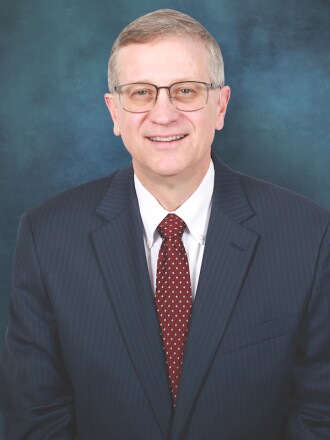State and local public health departments rely on the federal government for more than half of their funding (last year, more than $4.5 billion went to them). Planning programs within the scope of federal grants is one kind of challenge. The prospect of having to rethink plans if approved funding is held back is another.
There is no precedent for this dilemma, says Scott Harris, the health officer for the Alabama Department of Public Health. Harris, the current president of the Association of State and Territorial Health Officials, talked to Governing about how the sector is responding.
“People don't really think about us or notice us in our agencies, but if we weren't here, people would immediately understand the important work we are doing,” Harris tells Governing. “We need to do a better job of reminding people why we're here and what we do.”
The freeze on disbursing federal grant money was halted. What are public health officials taking from the fact that this was even ordered?
When you have a new administration, you get new priorities. We always work within that. Some things are funded to a larger degree, some things to a lesser degree. But the idea that all funding was immediately blocked from being released is not anything we'd ever even considered before as possible.
We do believe that we can continue with normal operations at the moment but we are all on alert. That could change. It's a very uncertain time right now for folks who run state agencies.
What are some of the risks from this disruption?

With some of the language around the original OMB order, it was clear that this was about trying to align with the executive orders from the White House. There was a lot of language in there about DEI [diversity, equity and inclusion] programs.
Public health agencies are working for health equity. We’re concerned that because this contains the word “equity,” there's confusion that this somehow represents DEI. We wonder if we're going to get the opportunity to be able to explain what that concept is, how that works and how it’s not related to what's in these executive orders.
How might withholding federal funding affect nonprofits that work with public health departments?
Most of the work that's being done on the ground is not literally done by my agency. Federal money that goes to the Centers for Disease Control and Prevention gets passed to state and local health departments, and a large portion of it gets passed on to local organizations, nonprofits and others that are doing the actual face-to-face work.
Any significant interruption in funding is potentially catastrophic for many of those nonprofits. Oftentimes, these are community-based organizations, small or medium sized. They tend to be local in their geographic scope, they tend not to have sophisticated organizational apparatus for handling finance, and they certainly don't have financial reserves. Typically, they have to do work, submit invoices and wait for reimbursement. Because of that model, there's just no margin for them to go an extended period without funding. They won't survive.
The funding freeze is not meant to include Medicaid, but Medicaid cuts are expected under the new administration. What could this mean for public health and public health departments?
Low-income Americans, and low-income Alabamians, depend on Medicaid. Unfortunately, you're going to see worse outcomes as resources are reduced. We can only hope to find a way to mitigate that as much as possible.
It’s challenging to know how we're going to go forward with significant cuts in that area. Our system is designed so that we can try to give medical care in certain circumstances to everyone, regardless of ability to pay. But when people don’t have the ability to pay, it's not always the best care, the most cost-effective care or the optimal care. More people are going to suffer. It's just going to be a difficult situation.
I'm not an economist, but we generally think that preventive care or earlier, intervening care, saves a lot of money compared to waiting until people present with more complications, later in the course of a disease.
How might the president’s decision to break away from the World Health Organization, ending funding and even prohibiting contact with it, affect state health officials?
I can only speak for my state. We don't directly interface with them, but we certainly understand that the work they do has a bearing on what we do. They are responsible for a lot of surveillance in other parts of the world, and there’s just no way to replace the information that they have. Many times, they are going to be the first eyes and ears to events in some remote corner of the world that have significant implications for our country. I worry that we're going to lose the ability to be privy to that information.









